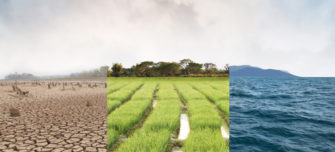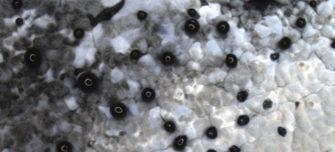The role of microbes in climate change and recycling

What is climate change?
Microbes play key roles in nutrient cycling, biodegradation/biodeterioration, climate change, food spoilage, the cause and control of disease, and biotechnology. Thanks to their versatility, microbes can be put to work in many ways: making life-saving drugs, the manufacture of biofuels, cleaning up pollution and producing/processing food and drink.
While humankind has only relatively recently started to alter the composition of the atmosphere and the energy balance of the planet, micro-organisms have been dictating global climate for billions of years. Microbes play an important role as both users and producers of greenhouse gases. Both natural and human-induced fluxes of carbon dioxide, methane and nitrous oxide are dominated by microbiology.
However, microbes live in diverse communities that interact with other organisms and the environment, making their impact difficult to predict. What is certain is that human activities have helped to increase the production of greenhouse gases by microbes.
Why is climate change important to microbiology?
Climate change is a hot topic and global warming is a big concern. Microbes are involved in many processes, including the carbon and nitrogen cycles, and are responsible for both using and producing greenhouse gases such as carbon dioxide and methane. Microbes can have positive and negative responses to temperature, making them an important component of climate change models.
The role of microbes in climate change cannot be ignored. They play an important role as both users and producers of greenhouse gases. Both natural and human-induced fluxes of carbon dioxide, methane and nitrous oxide are dominated by microbiology.
Read more about the role of microbes in climate change and recycling, through a series of interviews with our members and the wider microbiology community, access our additional resources, and continue to read more about microbes and where to find them as we explore novel products from microbes.
-
Microbiologists working in this area
To celebrate our 75th anniversary in 2020, we invited microbiologists to nominate the discovery or event that best showcases why microbiology matters and helps us demonstrate the impact of microbiologists past, present and future. Learn more about the microbiologists who are working to understand the role of microbes in climate change and recycling.
-
Resources and further reading
Discover more about the potential consequences of climate change on microbial life in the ocean, the fungal epidemic that has had a huge impact on our environment, the importance of microbiomes and nutrient cycling, and why mycotoxins are important, and how they impact climate change and food security.
-
Novel products from microbes
Micro-organisms have fascinating lifestyles, and many of those that live in the natural environment carry out beneficial or detrimental functions depending on the situation in which they find themselves. We will explore how the natural world has provided us with a huge diversity of products, which have been utilised for everything from medicine to pesticides.
Image credits:
Protected reefs in the Gardens of the Queen, Cuba, Amy Apprill
piyaset/iStock
Emily Addington





